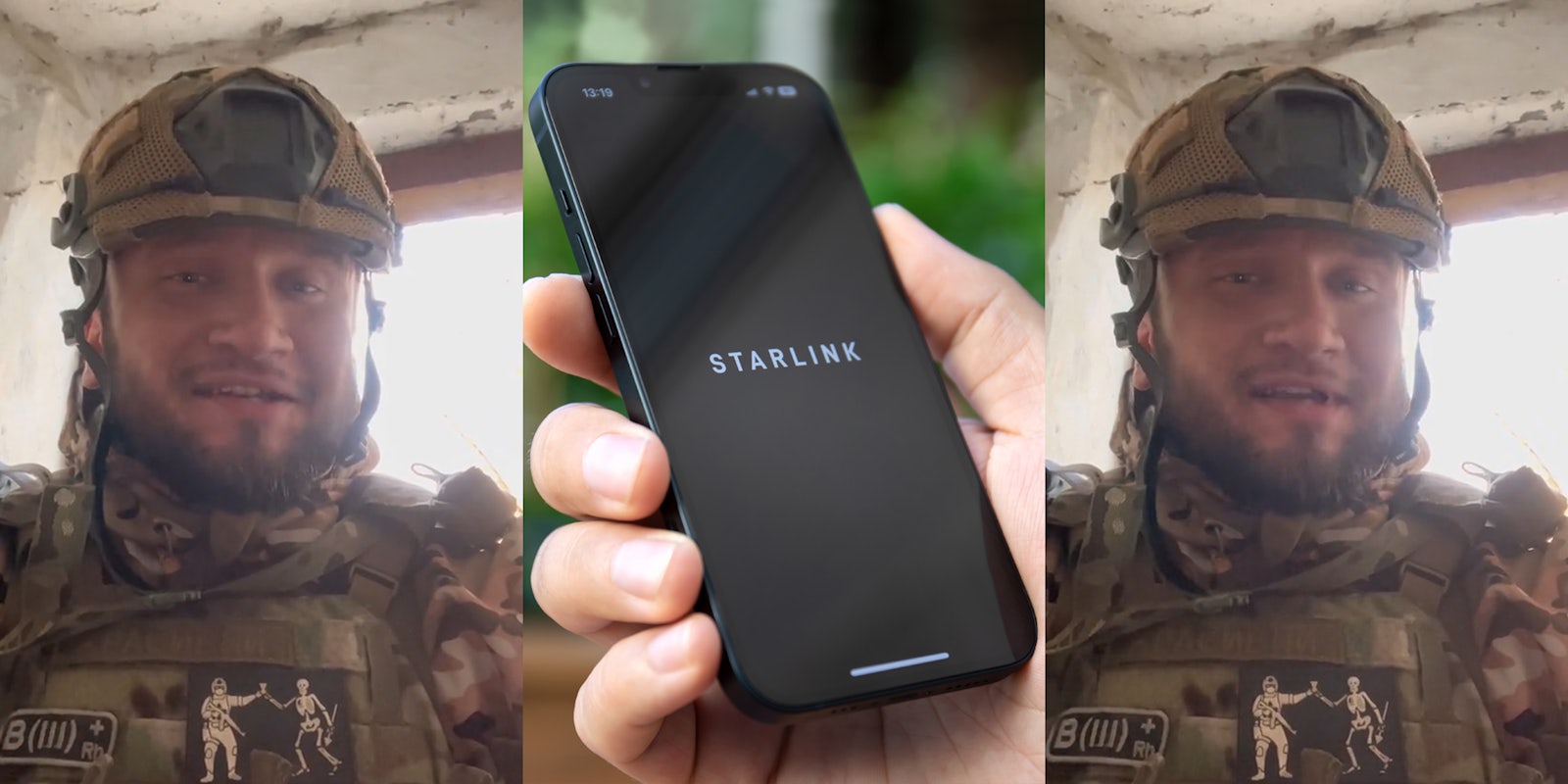Vladymir Fedorov never wanted praise when he joined Ukraine’s military. When he fought alongside Azov residents or worked in clean-up areas in Kharkiv, he wasn’t thinking about social media.
But in the two months since his unit in the Donetsk region received internet access, he has become a recognizable face for his followers on TikTok, showing them life on the frontlines of Ukraine and his country’s fight for independence.
@vladymirfedorov Chasing a group of russian paratroopers #ukraine #warinukraine #militarylife #україна🇺🇦 #зсу #русскиесвиньи ♬ оригинальный звук – Vladymir Fedorov
Countless military units have depended on Elon Musk over the past ten months as he has provided Ukraine with one of its most vital resources to defend itself from Russia’s invasion—Starlink.
Since the war’s outbreak, 20,000 Starlink terminals—compact internet units connected to satellites that can be used even on the frontlines of a warzone—have been donated to countless Ukrainian military units.
Ukrainian troops often use the terminals in fields with no connection, just a few miles from where Russians sit. Its service has been, according to them, essential.
However, over the past few months, Musk’s reliability as an ally to Ukraine has come into question, and there is a fear that Starlink access will be stripped away from units throughout the country.
A number of worrying signs are arising.
In November, SpaceX emailed Starlink users in Ukraine to say that the monthly service cost would be increased from $65 per month to $75 and the one-time hardware costs from $300 to $700. Reports have also begun to emerge of service outages in some of the hotspots of the war. The Financial Times said soldiers claimed to lose internet access in recently liberated territories, such as Kharkiv and the Luhansk region.
Roman Sinicyn, a coordinator at Serhiy Prytula Charity, a foundation that donates Starlink systems to Ukraine’s armed forces, told the Financial Times that Starlink’s failures in liberated areas might be intentional.
Meanwhile, on Twitter, Musk suggested that Ukraine gave up land in order to reach a peace agreement with Russia, which was met with immediate backlash. The result caused the country’s president, Volodymyr Zelenksyy, to write his own poll asking, “which Elon Musk do you like more?” The “one who supports Ukraine,” or the “one who supports Russia.”
Fears of Musk’s dwindling support for Ukraine reached a new high following a CNN report on Oct. 14 that he sent a letter to the Pentagon warning Starlink “may stop funding the service in Ukraine unless the U.S. military kicks in tens of millions of dollars per month,” to SpaceX, which owns the company.
Despite Musk having a net worth in the billions, he stated that funding Starlink in Ukraine cost SpaceX $80 million by October and was predicted to exceed $100 million by the end of the year.
Shortly after CNN’s article surfaced, Musk said, “The hell with it … even though Starlink is still losing money & other companies are getting billions of taxpayer $, we’ll just keep funding Ukraine govt for free.”
Despite Musk’s assurance that Starlink will continue to operate in Ukraine, the anxiety of the letter remains.
Recently, Musk also praised a thread from former Russian President Dmitry Medvedev
However, SpaceX is reportedly preparing to send an additional 10,000 Starlink terminals to Ukraine in the coming months.
It’s hard to overstate what Starlink has done for troops fighting and how Musk’s teasing and proclamations have created a sense of unease
For troops who already have access to Starlink, an abrupt end might cause alienation, as they’d lose access to their families or a way to escape the realities of war by having fun on social media.
In just two months of having Starlink, Fedorov accumulated over 111,000 TikTok followers; videos often simply show Fedorov in his military gear, walking through forests, drinking water, or eating a cookie on a decrepit wall while Russian jets fly above.
@vladymirfedorov When the enemy aircraft is flying above you, all you have to do is pray and eat cookies #ukraine #ukrainewar #military #украина #зсу #україна ♬ оригинальный звук – Vladymir Fedorov
“I believe that I have something to teach and something to show; when I succeed, I feel like I made the world a better place. It’s nice,” Fedorov said. He added that Starlink is “the most essential technology on the front. Thanks to her, our intelligence and our effectiveness in communication between units is extremely high.”
For Fedorov, Starlink and social media are intertwined in his military life, helping his troop gain attention on social media and keeping followers interested in the war.
With stable internet access, soldiers can “find a nearby Russian tank, mark its coordinates and pass it on to your artillerymen. They fire a shot and hit it.” Afterward, Fedorov will take to social media to “post a video with [the] explosion on Instagram, which can be watched by the same Russians who are sitting 3-4 km from you,” he adds.
When asked what the impacts of losing Starlink would mean for his family, Fedorov said, “The worst thing that can happen personally … is not having time to tell his loved ones” if he were in danger or near death.
For now, Starlink assuages those worst fears. But Musk’s impulsiveness and chaotic decisions mean that fear can never truly dissipate.



